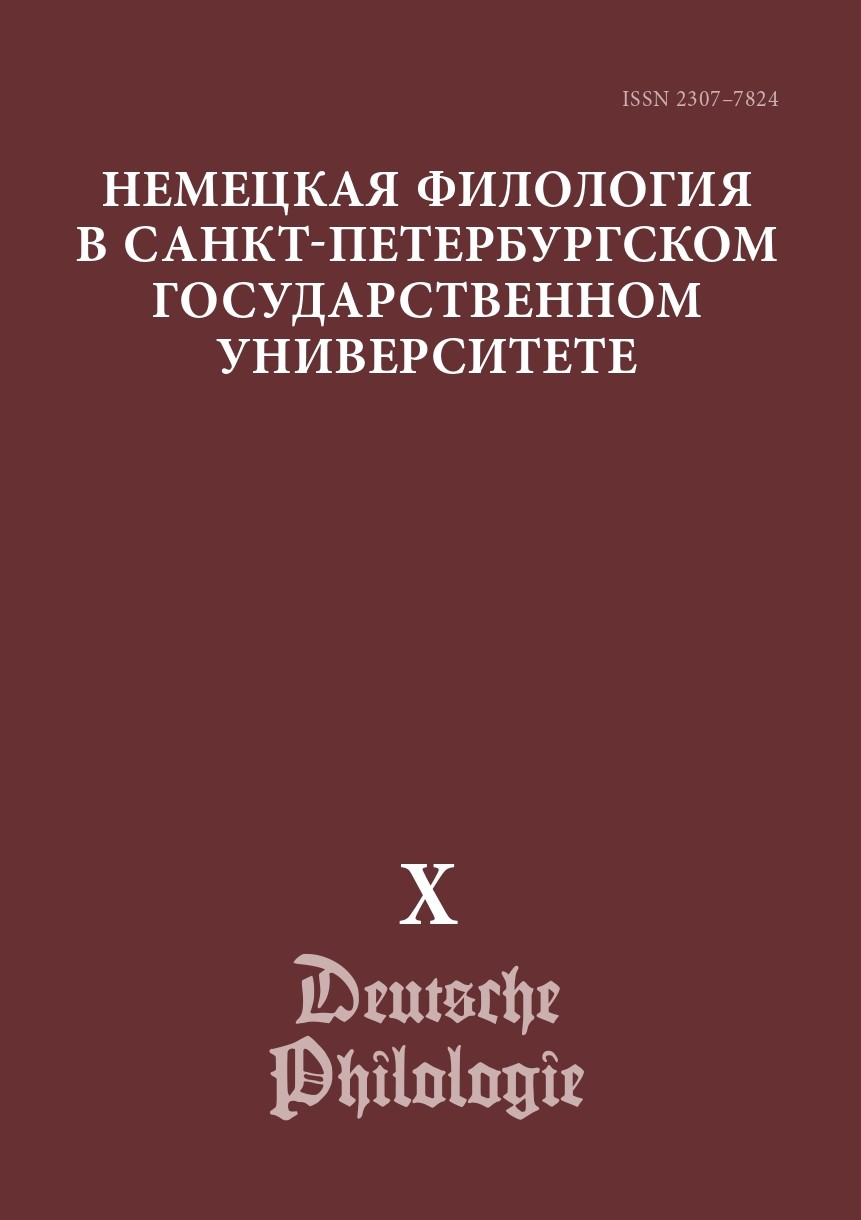AN OUTLINE OF GERMAN GRAMMATOGRAPHY IN 18th-СENTURY RUSSIA
Abstract
V.G.Admoni points out that grammar books were among the most significant documents of modern European science, playing a special role in European scientific discourse. The term “grammarography” includes both the process of grammatical description and the result of this description in the form of a grammar book. Historical documents provide insight into how grammar books were written and help analyze the resulting description in the form of a grammar book. The purpose of the article is to perform a comparative study of the grammar textbook structure, content and metalanguage, identifying important aspects of grammar in 18th-century Russia as well as German and Russian scientific discourses of the Enlightenment. One of the features of German grammarography in 18th-century Russia is that, along with the publication of German grammar textbooks, Russian grammar books written in German were also created, using the terminology and metalanguage common for German grammarography. The Russian Grammar by M.Lomonosov (1757) and its translation into German (“Russische Grammatick”, 1764) had a significant impact on terminological and metatext description principles in 18th-century Russian grammarography. The most complex metatext structure can be seen in the innovative German grammar textbook by Fr. Hölterhof (1770), featuring textual notes, explanatory footnotes, test questions, word lists, reading texts and exercises for self-learning. This structure shows Hölterhof’s intention to introduce new methods into German language teaching. A comparative study of the structure, content and metalanguage of grammar textbooks helps identify important aspects of grammatical discourses in Germany and Russia in the 18th century.
Keywords:
grammar, text, source study, German Language, Russia, 18th century, Admoni
Downloads
Downloads
Published
How to Cite
Issue
Section
License
Условия передачи авторских прав на статьи и рецензии, опубликованные в ежегодном периодическом издании «Немецкая филология» регулируются условиями Лицензионного Договора автора с Санкт-Петербургским государственным университетом. В соответствии с Лицензионным Договором опубликованные материалы находятся в открытом доступе, а авторам бесплатно предоставляется неограниченные возможности их распространения и самостоятельного архивирования.




